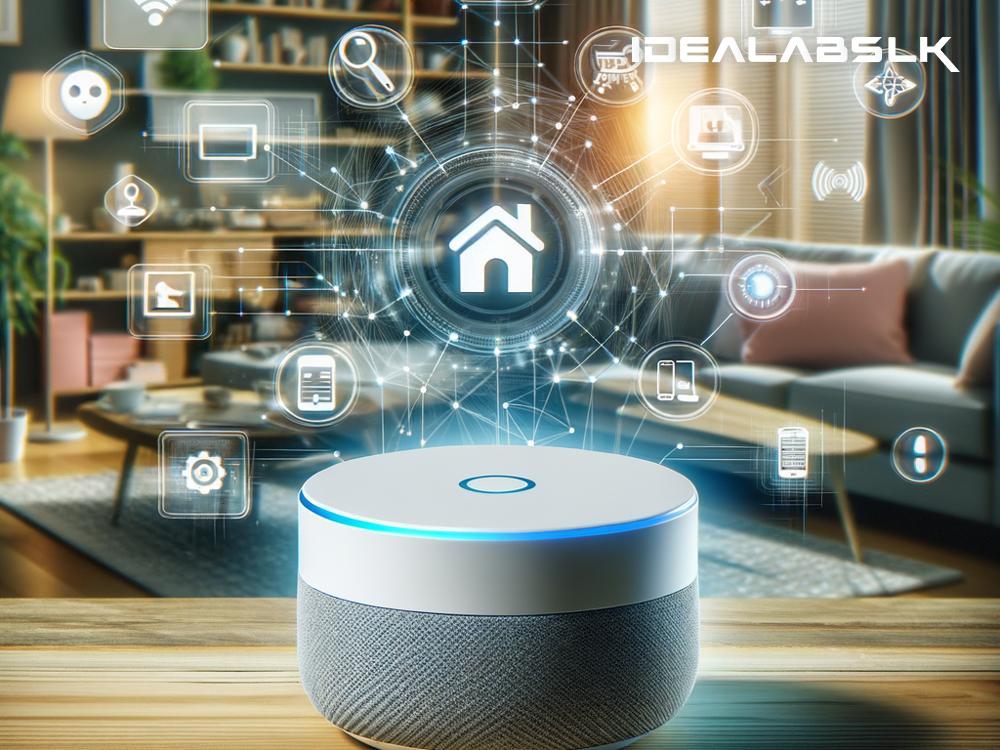Unlocking Smarter Living: How AI Elevates Contextual Awareness in Smart Home Hubs
In the bustling era of technology, imagine walking into your home after a long day, and the lights dim to a comforting level, your favorite playlist softly starts playing in the background, and the air conditioner adjusts to your preferred temperature—all without lifting a finger. This isn't a scene from a futuristic movie but a reality made possible by smart home hubs equipped with artificial intelligence (AI). The secret ingredient enabling these devices to understand and anticipate our needs with such finesse is called contextual awareness. Let's explore how AI is revolutionizing our living spaces by making them not just connected, but truly smart.
What is Contextual Awareness?
At its core, contextual awareness in technology refers to the ability of devices to use data to understand and respond appropriately to the situation at hand. It's the difference between a light that switches on with a timer and a light that knows when to illuminate based on the natural light in the room, whether someone is present, and what activity is happening.
The Magic of AI in Smart Home Hubs
Smart home hubs act as the brain of your home automation system, communicating with and controlling various smart devices. The introduction of AI into these hubs has been a game-changer, particularly in enhancing contextual awareness. Here's how AI does its magic:
-
Learning from Data: AI algorithms thrive on data. Through continuous learning from your habits, preferences, and even the fluctuating patterns of your household, AI makes your smart home hub increasingly intelligent. This learning process enables the system to predict and adjust to your needs with remarkable accuracy.
-
Sensory Perception: Equipped with AI, smart home devices can now understand context through sensors. These sensors detect motion, light, temperature, and even sound, feeding this information back to the hub. AI processes this sensory data in real-time, interpreting what it signifies about your environment and activities.
-
Predictive Analysis: By analyzing past behaviors and environmental conditions, AI anticipates your preferences at any given moment. If it has learned that you enjoy cooler temperatures for sleeping, your smart thermostat can adjust accordingly as bedtime approaches.
-
Natural Language Processing (NLP): AI has significantly advanced in understanding and interpreting human language. This allows you to interact with your smart home hub through voice commands in a way that feels natural and effortless. More than just obeying commands, these systems can now understand context and intent, making interactions more intuitive.
-
Integrating Devices for Unified Responses: AI doesn't just enhance individual devices; it enables an ecosystem of devices to work in harmony. For example, when your alarm goes off in the morning, AI can instruct your blinds to open, your coffee maker to start brewing, and your bathroom to heat up—all because it understands the context of your routine.
Real-life Benefits
The implications of all this are profoundly beneficial for everyday life:
- Energy Efficiency: Smart homes optimized with AI ensure that energy is only used when needed, reducing waste and saving on bills.
- Enhanced Comfort: Your home automatically adjusts to your personal comfort levels, from lighting to temperature.
- Increased Security: AI-driven systems can distinguish between routine activities and unusual events, alerting you to potential security breaches.
- Personalization: Perhaps most importantly, AI-powered smart homes can cater to the unique preferences of each household member, creating a truly personalized living experience.
The Future is Smart
The revolution of AI in smart home hubs is just beginning. With advancements in AI technology, we can expect even more sophisticated contextual awareness that will further simplify and enrich our lives. In the future, your home won't just be a place where you live; it will be an intuitive environment that nurtures your wellbeing, productivity, and happiness.
In summary, the magic of AI in smart home technology lies in its ability to give your home's brain a remarkable sense of contextual awareness. By understanding and anticipating your needs, AI ensures that your living space adapts to you, not the other way around. As we continue to embrace these technologies, the promise of a smarter, more intuitive home is not just a possibility—it's becoming our reality.

